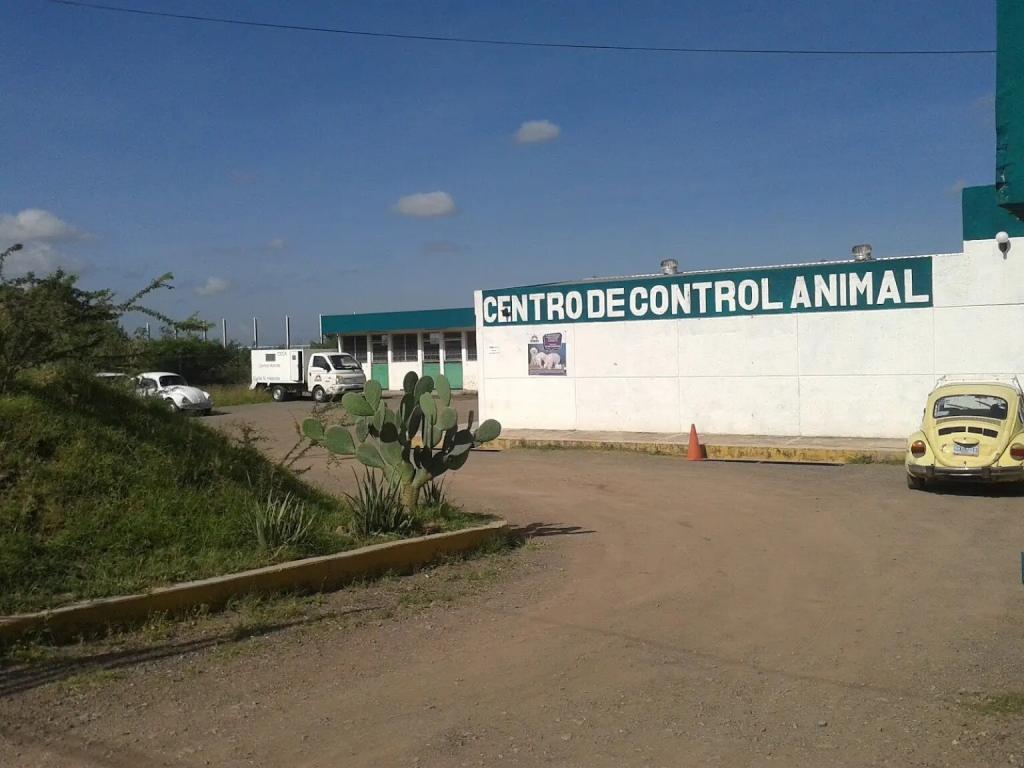On Thursday, May 25, Dr. Luis Alberto Fernández Ferro, the veterinarian in charge of the city’s Animal Control and Assistance Center, known as CECAA, spoke with by Luis Camacho, host of the morning program “Despierta Guanajuato,” about CECAA’s responsibilities and challenges. A summary of his comments follows. You can watch the interview by clicking here.
CECAA was established in 2009, thanks to the support of then Municipal President Dr. Eduardo Romero Hicks. Dr. Fernández Ferro and Jesús Cuello worked with the mayor to organize CECAA.

The public in general considers CECAA staff to be bad people because they capture dogs and cats that they find roaming on the street. But in reality the animals picked up by CECAA are taken to the facility, where they are cared for so that their owners can claim them, or they are brought there by their owners and given up for adoption.
Sadly, there are people who leave their pets tied to the fence or leave them in bags outside the gate with the expectation that CECAA will take care of them. So far this year, approximately 300 dogs and cats have been abandoned in this way. Pets have also been left at airports, by travelers who were planning to take their pets with them but, finding that their paperwork has not met the requirements of the airline or the country of destination, have simply abandoned them.
CECAA works hand in hand with animal protection organizations in Guanajuato, such as Amigos de los Animales, A.C., whose work model focuses on two activities, the sterilization of pets and educating the public. Amigos has performed well over 20,000 sterilization surgeries.
Rescuing and adopting pets is fashionable, and is very laudable, but without clarity of the commitment that it implies, the result is harmful to the animals. Too many of them end up on the street, or tied to a fence, or living on a rooftop. Therefore, it is important to be clear about the cost of adoption and the commitment required to care for a pet.
Some people let their pets go out into the street alone. The risk to other people and the pets themselves is high. The animals can be run over, or they may bite someone, contract diseases from other animals, or cause car or motorcycle accidents. Every week four to five people in Guanajuato report being bitten by a dog not under its owner’s control.
A pet should not be a gift for children. When dogs are puppies, they are very cute. When they grow up, many owners no longer have interest in them and abandon them to their fate in the street.
To adopt a pet from CECAA, you need to present a copy of your INE (electoral) card and proof of your current address, and you must sign a form pledging to be responsible for the pet. CECAA conducts a physical or telephone follow-up interview to evaluate the animal’s situation.
There are only seven animal control centers in the entire state of Guanajuato. CECAA has six large holding areas for dogs and 42 individual cages. The animals cannot remain there for long in such conditions. After being together in a cage for a while, they become more aggressive and a danger to themselves.
Rabies is a serious problem wherever there are not enough rabies vaccines. CECAA conducts a continuous vaccination campaign.
A sad experience occurred in the state of Nayarit, where several children died from rabies. Infected bats passed the virus to other wild animals with which the children came into contact.
A wild animal can be very dangerous if it is not handled properly. CECAA personnel have rescued owls, foxes, gazelles. It is best to leave wild animals in their habitat. If you find one that is hurt, call the Environmental Police. They will take care of it regardless of the situation.
CECAA receives and welcomes in-kind donations from the public, for example powdered soap for cleaning the facility. Students performing their Social Service participate in daily activities at CECAA, such as cage cleaning, dog walking, and office work.
Three times a week CECAA offers sterilizations of male and female dogs and cats at very low cost. The amount, ranging from 500 to 350 pesos, depends upon the species and sex of the animal. It is necessary only to make an appointment and the corresponding payment. CECAA’s hours are from 8:30 a.m. to 4 p.m. on weekdays. Its telephone number is 473 733 4839.
